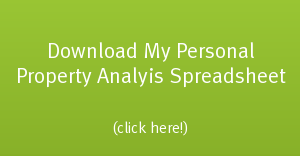Most investors wait until their forties, fifties, or sixties to begin investing in real estate. While there is nothing wrong with investing at those ages, there is an underlying belief among many young people that it is not possible to invest until a person is well grounded and experienced later in life. In the words of Dwight Schrute: False.
Investing in your twenties (and thirties) is not only possible, but beneficial. This post will look at six myths that hold young people back from investing and why waiting to invest is both unnecessary and detrimental to your investment plan.
I Don’t Have The Time –
Let me tell you a secret that the older generation all know – as you age you don’t get any more free time. In fact, the older you get, the more obligations seem to compile. Kids, career, home maintenance, civic activities, etc all seem to multiply as you mature in life. Unless you plan on waiting until you are retired to start investing, you are never going to have “more time”. Don’t use “I’m too busy” as an excuse not to invest. You can’t afford to wait.
I Don’t Have Enough Money
Money is important in investing in Real Estate. While “gurus” have made millions of dollars selling the idea that anyone can invest in real estate with no cash, credit, or problems – the fact is it does take money to invest. However, that money doesn’t have to come from you. You can purchase your first property with nothing more than 3.5% down, which depending on the program and current lending standards, can be a gift from a relative.
You can also use your own sweat and muscle in the place of money. For example, purchasing a property through a hard money lender (non-bank individuals and companies who can finance the acquisition and materials for repair based on the value of the property, not the value of your wallet), improving the property, and subsequently refinance the property with no money out of pocket.
I Don’t Have The Credit
If you have made mistakes in your early years regarding credit, or you simply have never used credit and therefore don’t have any, investing is not impossible. It simply takes another set of tools to make it happen.
First, you need to immediately begin fixing your credit. There are dozens of books online and at your local public library that deal with the issue of credit repair. Study these, follow these, and soon your credit problems will be a thing of the past.
In the meantime, you can try flipping properties or wholesaling properties. Additionally, hard money lenders do not generally care that much about your credit. If you find an amazing deal, the funding will be there. Also, it doesn’t take good credit to write up offers, to find motivated sellers, or contact other investors to sell deals to. Wholesaling property is an excellent way to learn the business, meet other investors, and earn good money – all without any credit involved.
I Don’t Know Enough
Knowledge is foundational to any real estate investor, but your age makes no difference in your ability to learn. The first step I tell any would-be investor is to invest first in their education. The internet is full of great posts (such as the Bigger Pockets blogs, forums, and articles) and your public library is an unending source of knowledge. (see more about gaining a free real estate education on my website).
One major advantage young investors have over the older generations is your ability to learn. As you age, your desire to pick up a book and learn or take a class on a subject decreases exponentially. You are not that far out of high school or college, so use those skills to learn how to invest. (Now, I do know many older investors who continually sharpen their mind through books, classes and other learning tools. However, I am speaking of adults in general).
I Don’t Want To Lose It All
Investing, by nature, involves risk. However, a smart investor knows how to invest with careful criteria and sound judgment, minimizing risk and maximizing financial gain. This, again, is true at any age.
No one wants to lose when it comes to investing. Who, though, is at the greater disadvantage when it comes to risk? Someone who is looking to retire in five years or forty years? Clearly, the younger you start, the more time you have to make mistakes and still recover.
I am not suggesting that you make risky choices- jut the opposite, in fact. However, don’t let fear of losing stop you from winning big. When you have forty years ahead of you before retirement, you are allowed to build that nest egg into a war chest. Investing $10,000 and adding no additional funds for forty years at a 15% interest rate (the minimum you should shoot for with any real estate investment) will result in almost three million dollars at the end. Now imaging what adding an additional $10,000 per year would do ($23 million, in case you were wondering). No wonder Einstein called compound interest the most powerful force in the universe.
I’m Not Stable Enough –
This is one of the largest complaints I hear from people when I encourage them to invest in real estate at a young age. Young people, by nature, are much more unstable in our lives. We change occupations, get married, have kids, move across town or across the country. However, this is used more often as an excuse not to invest than a reason.
If you were planning on moving to another state in six months, perhaps it doesn’t make a lot of sense to purchase a home. However, you can still learn the ropes by wholesaling a deal or two during this time to another investor, picking up on skills that will follow you anywhere you move in the world. The houses may change style, laws differ, and your income fluctuate – but the fundamentals of real estate are the same where ever you live.
P.S. looking for hard money loans in California? Be sure to check out my friends over at northcoastfinancialinc.com. They have very competitive rates, can fund within a week and specialize in fix and flip loans and other hard money loans.


 If this is your first time here at Real Estate In Your Twenties.com - welcome!
If this is your first time here at Real Estate In Your Twenties.com - welcome! 





